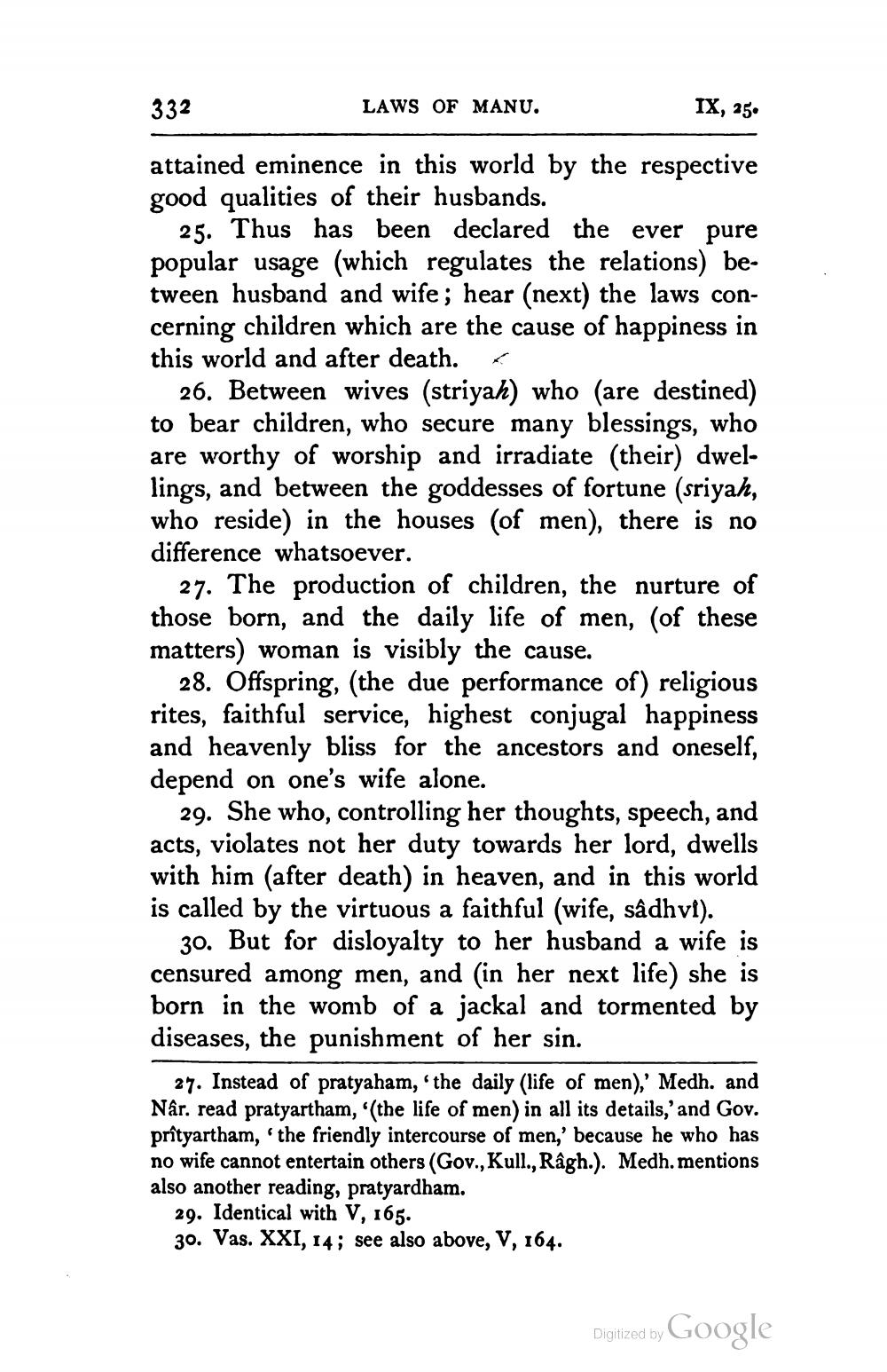________________
332
LAWS OF MANU.
IX, 25.
attained eminence in this world by the respective good qualities of their husbands.
25. Thus has been declared the ever pure popular usage (which regulates the relations) between husband and wife; hear (next) the laws concerning children which are the cause of happiness in this world and after death. <
26. Between wives (striyah) who are destined) to bear children, who secure many blessings, who are worthy of worship and irradiate (their) dwellings, and between the goddesses of fortune (sriyah, who reside) in the houses (of men), there is no difference whatsoever.
27. The production of children, the nurture of those born, and the daily life of men, (of these matters) woman is visibly the cause.
28. Offspring, (the due performance of) religious rites, faithful service, highest conjugal happiness and heavenly bliss for the ancestors and oneself, depend on one's wife alone.
29. She who, controlling her thoughts, speech, and acts, violates not her duty towards her lord, dwells with him (after death) in heaven, and in this world is called by the virtuous a faithful (wife, sâdhvi).
30. But for disloyalty to her husband a wife is censured among men, and (in her next life) she is born in the womb of a jackal and tormented by diseases, the punishment of her sin.
27. Instead of pratyaham, the daily life of men),' Medh. and Nar. read pratyartham, '(the life of men) in all its details,' and Gov. prîtyartham, 'the friendly intercourse of men,' because he who has no wife cannot entertain others (Gov., Kull., Râgh.). Medh. mentions also another reading, pratyardham.
29. Identical with V, 165. 30. Vas. XXI, 14; see also above, V, 164.
Digitized by Google




